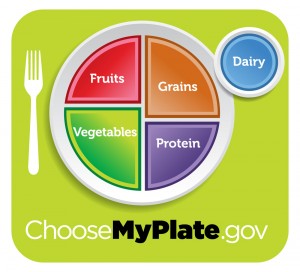
Super foods might seem like the cure-all for staying happy and awake during long classes and study sessions, but going back to the food basics is the best way to feel good and stay energized throughout the day.
Lora Beth Brown, EdD, RD, CD, of the Department of Nutrition, Dietetics and Food Science, suggests that a well-balanced meal full of variety and moderation is the most direct way to get in all the nutrients and vitamins people need on a daily basis.
Brown advises following the guidelines on choosemyplate.gov., a nutrition guideline organized by the U.S. Department of Agriculture, but recognizes that this nutritional advice is often overlooked for more exciting and easy options.
“It’s too boring,” said Brown. “It’s not pomegranate juice or any of the new things consumers want to hear about. There’s nothing wrong with those foods, but they’re not always manageable.”
Although mood changes based on diet can be difficult to measure, Brown said some of her students will talk of diet changes that lead to improvements in their demeanor and their day.
“Students will come back and say, ‘I started eating breakfast, and now my roommates like me better,'” said Brown. “Or, ‘I started eating a full meal for dinner, and I have more energy.'”
Having a balanced diet will mean something different to everyone.
“There is not one meal pattern,” said Rickelle Richards, PhD, MPH, RD, of the department of Nutrition, Dietetics and Food Science. “Just eat when you’re hungry until you’re satisfied.”

Some nutrients and vitamins are linked to chemicals in the brain that influence our moods and well-being, according to Beth Orenstein at Everydayhealth.com
Some examples of these include proteins combined with carbohydrates, and fiber, which are important in maintaining blood sugar levels and thus stable moods.
Vitamin D helps the brain produce chemicals that can boost a person’s moods and that are abundant in low-fat yogurt, cheese and milk. Vitamin C, another contributing vitamin to the chemicals that regulate mood, can be found in foods like poultry, eggs and low-fat yogurts.
While these vitamins and nutrients do help, Richards suggests that keeping a balanced diet will already include all of these nutrients and vitamins.
“B vitamins are involved in energy metabolism, but unless you are vitamin B deficient, taking those extra vitamin supplements and any energy drinks aren’t going to be what gives you energy,” Richards said. “By meeting the guidelines from choosemyplate.gov, which is what we advise our students, you will meet those guidelines.”




